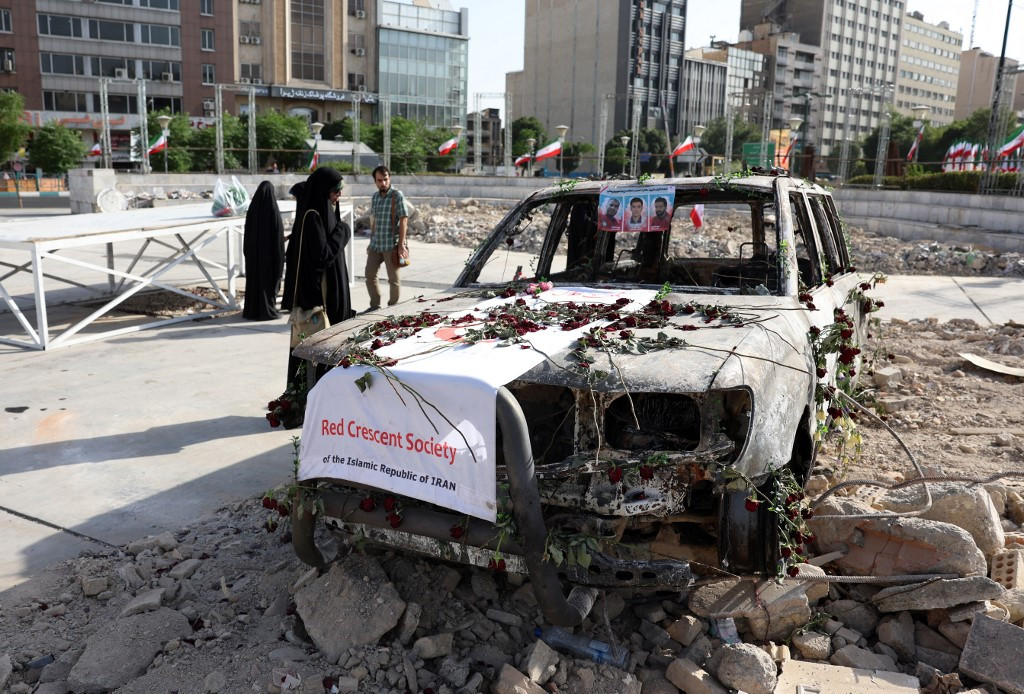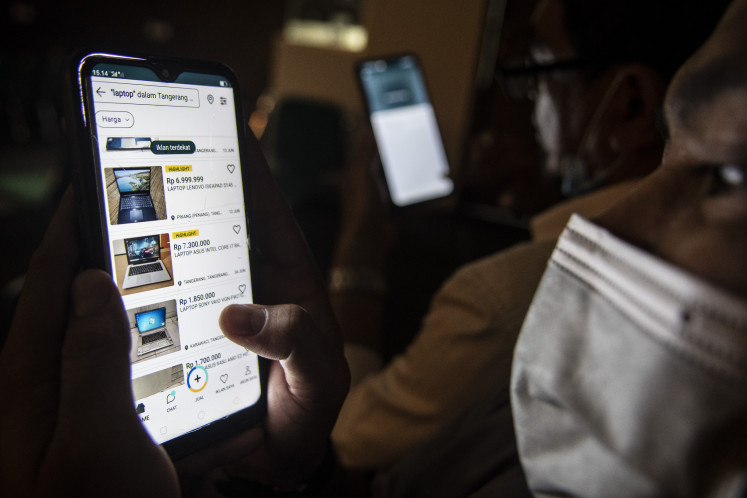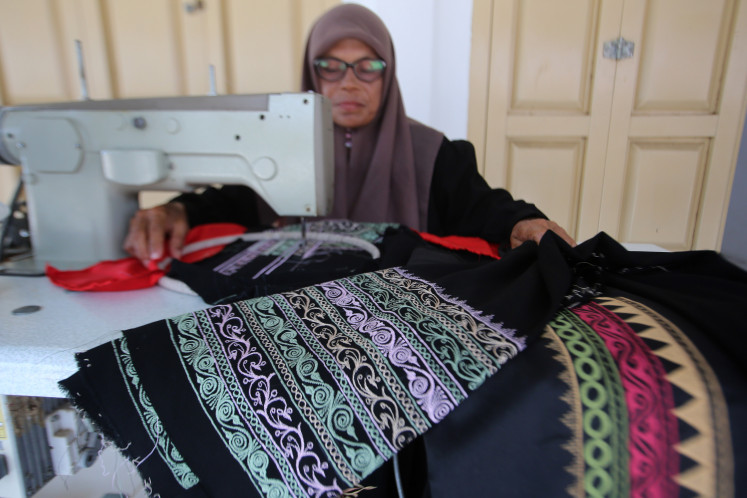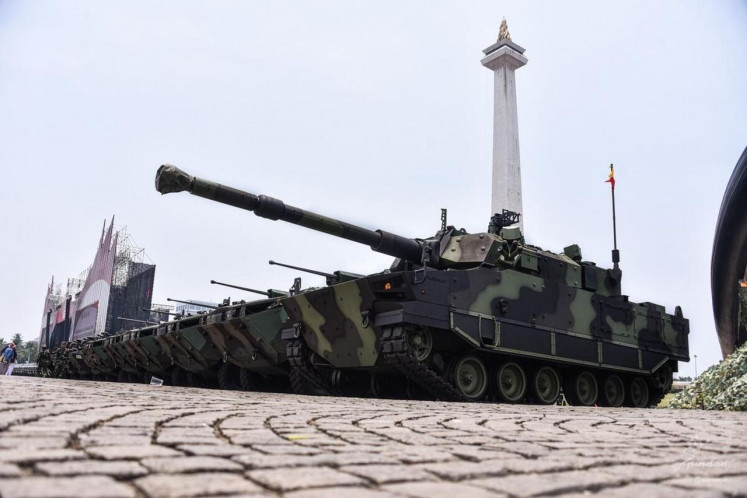Popular Reads
Top Results
Can't find what you're looking for?
View all search resultsPopular Reads
Top Results
Can't find what you're looking for?
View all search resultsGiving a culture of peace a chance in the Middle East
One of the weaknesses of the Middle Eastern region is that they do not have a functional regional and sub-regional organization and/or framework.
Change text size
Gift Premium Articles
to Anyone
T
he ongoing, devastating conflict in the Middle East, particularly the Iran-Israel tensions and the war in Gaza might lead one to believe a culture of peace is impossible there.
I hold a slightly different, less pessimistic view. A culture of peace is both technically and practically achievable in the Middle East, even amid these current challenges.
According to United Nations General Assembly Resolution 78/277 adopted on May 2, 2024, a culture of peace recognizes that all efforts made by the UN system in general and the international community at large for the prevention of conflicts, the peaceful settlement of disputes, peacekeeping, peacebuilding, mediation, disarmament, sustainable development, the promotion of human dignity and human rights, social inclusion, democracy, the rule of law, good governance and gender equality at the national and international levels contribute greatly to a culture of peace.
President Prabowo Subianto has echoed this sentiment, stating clearly that Indonesia advocates de-escalation and peaceful resolution as the only way to go if we meaningfully desire to achieve peace in the Middle East.
What does this mean in practice? I might describe it in three possible scenarios.
First, strengthening conflict prevention and resolution capabilities in the region. The whole world already knows that the Middle East, with the question of Palestine, is one of the top global hotspots for conflicts. It is only logical that a framework in the region should be ready to prevent (prevent from escalating, from reoccurring, from spilling over) and deescalate once tension or conflict erupts.
In this regard, the UN secretary-general, international community and countries in the Middle East should benefit from the UN Secretary-General’s High-Level Advisory Board on Mediation established on Sept. 13, 2017, to provide advice on mediation initiatives and back specific mediation efforts in the Middle East. The board is composed of 18 current and former global leaders, including former Indonesian foreign minister Marty Natalegawa, senior officials and renowned experts who bring together an unparalleled range of experience, skills, knowledge and contacts.
This could be done by giving them the mandate to work more effectively with regional organizations including the Gulf Cooperation Council (GCC) and Arab League, NGOs and others involved in conflict prevention and resolution in the Middle East.
Second, utilizing the UN Peacebuilding Commission (PBC). A peacekeeping approach or mandate seems impossible given the fact that it must be approved in the UN Security Council, and we know that it will be vetoed by one of the five permanent Security Council members.
The way around this is to put the issue of the Middle East as one of the configurations under the PBC. The PBC supports national and regional peacebuilding priorities, at the request of concerned governments. By the end of 2024, the PBC engaged in support of 31 separate country and region-specific settings.
Any concerned government in the region (not only the concerned parties Israel, Iran or Palestine) could request the inclusion of the situation for consideration by the PBC. I believe there are many concerned countries in the region that are willing to consider this initiative to deescalate the situation.
Not only will efforts in this direction be able to monitor and discuss meaningfully the dire situation in the region, but they can also ensure the primacy of politics in resolving issues in the Middle East.
Third, exploring a workable regional and sub-regional organization and/or framework. One of the weaknesses of the Middle Eastern region is that they do not have a functional regional and sub-regional organization and/or framework. Yes, they do have the GCC, but Israel, Iran and Palestine are not part of that.
The UN in this regard has good cooperation with the GCC. This partnership highlights the role of partnerships in maintaining international peace and security and underscores the importance of the contribution of the GCC in understanding better the root cause of conflicts within its region and conflict prevention, resolution and peacebuilding efforts. The UN should capitalize on this.
The UN could support initiatives within the conflict prevention and resolution mechanisms of the GCC and develop coordinated approaches to addressing regional emerging threats and challenges. Both parties could also enhance information-sharing and analysis of regional developments and strengthen cooperation in preventive diplomacy and mediation efforts, as well as post-conflict peacebuilding and reconciliation.
The GCC could also develop partnerships with Israel, Iran and Palestine that mirror those in ASEAN, such as ASEAN + strategic dialogue partners or ASEAN+3.
In conclusion, what I really want to emphasize here is that there are plenty of ways to ensure that diplomacy is still the ultimate way of resolving issues. What we really need in this time of crisis is genuine commitment and global leadership to steer the world in the direction of peace.
***
The writer is an Indonesian diplomat based in Rome. The views expressed are personal.











